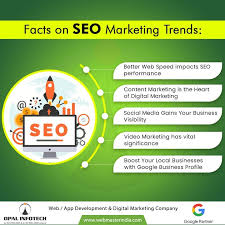Unlocking Success Through Digital Marketing Analysis
The Power of Digital Marketing Analysis
In the fast-paced world of digital marketing, data is king. Understanding the performance of your online campaigns is crucial to making informed decisions and maximising your return on investment. This is where digital marketing analysis comes into play.
What is Digital Marketing Analysis?
Digital marketing analysis involves the systematic evaluation of various aspects of your online marketing efforts. It includes gathering data from different sources such as website analytics, social media insights, email campaign metrics, and more. By analysing this data, marketers can gain valuable insights into the effectiveness of their strategies and identify areas for improvement.
The Benefits of Digital Marketing Analysis
By conducting thorough digital marketing analysis, businesses can:
- Measure the performance of their campaigns and channels
- Identify trends and patterns in consumer behaviour
- Optimise marketing strategies for better results
- Allocate resources more effectively based on data-driven insights
- Enhance customer engagement and retention through targeted approaches
Key Metrics in Digital Marketing Analysis
Some essential metrics that are commonly analysed in digital marketing include:
- Conversion Rate: The percentage of website visitors who take a desired action.
- Click-Through Rate (CTR): The ratio of users who click on a specific link to the number of total users who view a page, email, or advertisement.
- Return on Investment (ROI): The measure of revenue generated compared to the cost of the campaign.
- Bounce Rate: The percentage of visitors who navigate away from a site after viewing only one page.
The Future of Digital Marketing Analysis
In an increasingly competitive digital landscape, businesses that harness the power of data through effective analysis will have a significant advantage. With advancements in technology such as artificial intelligence and machine learning, digital marketing analysis is becoming more sophisticated and insightful than ever before.
By embracing digital marketing analysis as a cornerstone of their strategies, businesses can adapt quickly to changing market conditions, engage with their audiences more meaningfully, and drive sustainable growth in the digital age.
8 Essential Tips for Effective Digital Marketing Analysis
- Set clear goals and objectives for your digital marketing analysis.
- Use a variety of tools such as Google Analytics, social media insights, and email marketing analytics.
- Regularly monitor key performance indicators (KPIs) to track the success of your campaigns.
- Analyse customer behaviour and demographics to understand your target audience better.
- Perform A/B testing to compare different strategies and improve conversion rates.
- Stay updated on industry trends and changes in algorithms that may impact your digital marketing efforts.
- Collaborate with other teams such as sales and product development to align strategies and goals.
- Document your findings and insights to create a data-driven approach for future campaigns.
Set clear goals and objectives for your digital marketing analysis.
Setting clear goals and objectives for your digital marketing analysis is paramount to its success. By defining what you aim to achieve through your analysis, whether it’s improving website traffic, increasing conversions, or enhancing brand visibility, you provide a clear direction for your efforts. These goals act as guiding principles, helping you focus on the metrics and insights that truly matter in evaluating the effectiveness of your digital marketing strategies. With well-defined objectives in place, you can measure progress accurately and make informed decisions that drive tangible results for your business.
Use a variety of tools such as Google Analytics, social media insights, and email marketing analytics.
To maximise the effectiveness of digital marketing analysis, it is essential to utilise a diverse range of tools. Incorporating platforms like Google Analytics for website data, social media insights for engagement metrics, and email marketing analytics for campaign performance can provide a comprehensive view of your online marketing efforts. By leveraging these tools collectively, businesses can gain valuable insights into consumer behaviour, campaign effectiveness, and overall ROI. This multi-tool approach enables marketers to make informed decisions and refine strategies for optimal results in the ever-evolving digital landscape.
Regularly monitor key performance indicators (KPIs) to track the success of your campaigns.
To ensure the effectiveness of your digital marketing campaigns, it is essential to regularly monitor key performance indicators (KPIs). By tracking metrics such as conversion rates, click-through rates, return on investment, and bounce rates, you can gain valuable insights into the performance of your strategies. Monitoring KPIs allows you to identify trends, measure success, and make informed decisions to optimise your campaigns for better results. Consistent monitoring of KPIs is crucial in evaluating the impact of your efforts and adjusting your digital marketing tactics to achieve your business objectives efficiently.
Analyse customer behaviour and demographics to understand your target audience better.
To enhance the effectiveness of your digital marketing strategies, it is crucial to delve into customer behaviour and demographics analysis. By scrutinising how your audience interacts with your online platforms and understanding their demographic profiles, you can gain valuable insights into their preferences, needs, and purchasing habits. This in-depth understanding enables you to tailor your marketing efforts more precisely, create targeted campaigns that resonate with your audience, and ultimately drive better engagement and conversions. By analysing customer behaviour and demographics, you can refine your approach to effectively reach and connect with your target audience in a more meaningful way.
Perform A/B testing to compare different strategies and improve conversion rates.
Performing A/B testing is a crucial aspect of digital marketing analysis. By comparing different strategies through controlled experiments, businesses can gain valuable insights into what resonates best with their audience and drives higher conversion rates. This method allows marketers to make data-driven decisions, refine their approaches, and ultimately enhance the effectiveness of their campaigns. A/B testing empowers businesses to continuously iterate and optimise their marketing strategies for better results in the ever-evolving digital landscape.
Stay updated on industry trends and changes in algorithms that may impact your digital marketing efforts.
To stay ahead in the realm of digital marketing analysis, it is crucial to remain informed about industry trends and algorithmic shifts that could influence your online strategies. By staying updated on these developments, you can adapt your digital marketing efforts proactively, ensuring that your campaigns remain effective and aligned with the evolving landscape of online marketing. Being aware of industry trends and algorithm changes empowers you to make informed decisions that drive success in your digital marketing endeavours.
Collaborate with other teams such as sales and product development to align strategies and goals.
Collaborating with other teams, such as sales and product development, is a crucial tip in digital marketing analysis. By aligning strategies and goals across departments, businesses can ensure a unified approach towards achieving overall objectives. Sales teams can provide valuable insights into customer interactions and feedback, which can inform marketing strategies for better targeting and engagement. On the other hand, product development teams can offer input on product features and enhancements that resonate with the target audience, leading to more effective marketing campaigns. This collaborative effort fosters synergy among different functions, ultimately driving success in the competitive digital landscape.
Document your findings and insights to create a data-driven approach for future campaigns.
To maximise the impact of digital marketing analysis, it is essential to document your findings and insights meticulously. By creating a comprehensive record of the data-driven conclusions drawn from past campaigns, businesses can develop a strategic approach for future endeavours. This documentation not only serves as a valuable reference point but also enables marketers to make informed decisions based on proven results. Embracing a data-driven approach in digital marketing empowers organisations to refine their strategies, target their audience more effectively, and ultimately achieve greater success in their campaigns.






